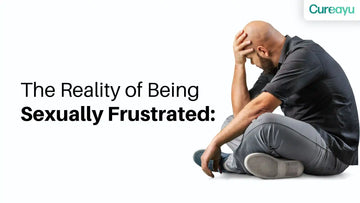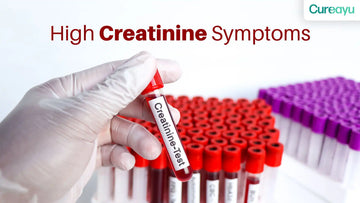Erectile dysfunction (ED) is a prevalent condition affecting men, characterized by the inability to achieve or maintain an erection sufficient for satisfactory sexual performance. While it's often associated with aging, ED can affect men of all ages and can be influenced by a variety of physical and psychological factors. Addressing ED involves understanding its underlying causes, recognizing symptoms early, and exploring effective treatment options to restore sexual health and overall well-being.
Also Read: Essential Tips and Practices for Optimal Liver Health
Erectile Dysfunction Meaning
Erectile dysfunction, also known as impotence, refers to the consistent or recurrent inability to achieve and maintain an erection firm enough for sexual intercourse. It can range from occasional difficulties to a persistent issue that affects self-confidence and intimate relationships. ED is not just a physical condition but can also have profound emotional and psychological impacts on individuals.
Erectile Dysfunction Symptoms
- Difficulty achieving an erection: Men with ED may find it challenging to attain an erection even with adequate sexual stimulation.
- Trouble maintaining an erection: Some individuals can achieve an erection but have difficulty keeping it long enough for satisfactory intercourse.
- Reduced sexual desire: ED can lead to a decreased interest in sexual activity due to anxiety, fear of failure, or previous negative experiences.
- Erection that does not firm up enough for penetration: In severe cases, the penis may not become firm enough for penetration despite arousal.
- Premature ejaculation or delayed ejaculation: These issues may accompany ED, impacting overall sexual satisfaction and performance.
Also Read: Understanding Prostate Problems: Symptoms, Causes, and Solutions
What Is The Main Cause Of Erectile Dysfunction
- Physical factors: Chronic illnesses such as cardiovascular disease, diabetes, obesity, and hypertension can impair blood flow to the penis or damage nerves essential for erection. Hormonal imbalances, particularly low testosterone levels, can also contribute to ED.
- Psychological factors: Stress, anxiety, depression, and relationship problems can interfere with sexual arousal and contribute to erectile difficulties. Past trauma or negative sexual experiences may also play a role.
- Lifestyle habits: Smoking, excessive alcohol consumption, substance abuse, and sedentary lifestyle choices can adversely affect erectile function by compromising cardiovascular health and overall well-being.
- Medication side effects: Certain medications, including antidepressants, antihistamines, and drugs for hypertension, can cause or exacerbate ED as a side effect.
Treatment For Erectile Dysfunction
- Medications: Oral phosphodiesterase type 5 (PDE5) inhibitors such as sildenafil (Viagra), tadalafil (Cialis), and vardenafil (Levitra) are often prescribed to enhance blood flow to the penis, facilitating erections. These medications should be used under medical supervision.
- Penile injections and suppositories: Alprostadil, a vasodilator, can be injected directly into the penis or inserted as a suppository into the urethra to stimulate blood flow and induce an erection.
- Penile implants: Surgically implanted prosthetic devices can be an effective option for men who do not respond to other treatments. These implants provide an on-demand erection and are discreet and reliable.
- Therapies: Counseling or psychotherapy can help address underlying psychological factors contributing to ED, such as anxiety, depression, or relationship issues.
- Lifestyle changes: Adopting a healthy lifestyle by maintaining a balanced diet, engaging in regular physical activity, quitting smoking, moderating alcohol consumption, and managing stress effectively can significantly improve erectile function.
- Alternative treatments: Acupuncture, herbal supplements (like ginseng or L-arginine), and shockwave therapy are emerging as potential treatments for ED, although their effectiveness and safety require further research.
Also Read: Where it Starts: Understanding Symptoms, Causes, and Early Detection
Prevention Plan For Erectile Dysfunction
- Maintain a healthy weight: Obesity is a risk factor for ED, so maintaining a healthy BMI through diet and exercise can reduce the likelihood of developing erectile difficulties.
- Exercise regularly: Physical activity improves cardiovascular health, enhances blood flow, and helps maintain overall fitness, which can contribute to better erectile function.
- Eat a balanced diet: Incorporate fruits, vegetables, whole grains, lean proteins, and healthy fats into your diet to support overall health and cardiovascular function.
- Manage chronic conditions: Control conditions like diabetes, hypertension, and high cholesterol through medication, regular medical check-ups, and lifestyle modifications to minimize their impact on erectile function.
- Limit alcohol and avoid recreational drugs: Excessive alcohol consumption and illicit drug use can impair sexual function, so moderate your intake or abstain altogether.
- Address psychological stress: Practice stress management techniques such as mindfulness, meditation, yoga, or seeking support from a counselor to reduce anxiety and improve overall mental health.
Conclusion
Erectile dysfunction is a multifaceted condition that can arise from physical, psychological, and lifestyle-related factors. By understanding its causes and symptoms early, men can seek appropriate treatment and make proactive lifestyle changes to enhance sexual health and overall well-being. Effective management of ED involves a holistic approach, including medical interventions, lifestyle modifications, and emotional support, enabling individuals to regain confidence in their sexual abilities and enjoy fulfilling relationships.












